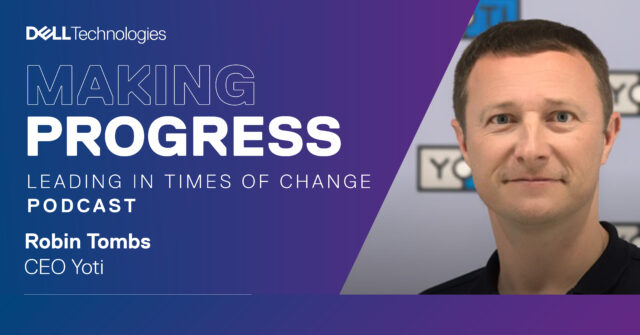For those who haven’t yet listened in, our latest episode of Making Progress: Leading in Times of Change, Michael Hayman and I were joined by the tech innovator and CEO of Yoti, Robin Tombs.
Driving for a safer, smarter future, Yoti is a digital identity platform helping users to verify their eligibility to access services both online and in person, in an increasingly digitised world.
We discussed with Robin about Yoti’s mission to utilise digital identity as a force for good, some key highlights included:
1. At a time when distrust overshadows the technology sector, ethical business is smart business
In our increasingly online world, there is a growing need for businesses to combat consumer distrust surrounding privacy and data handling. To develop trust online, businesses must demonstrate transparency and responsibility. We must communicate a clear message of the mutual benefits available to both companies and customers when they access online services. By sharing their data, consumers receive an enhanced digital experience. In return, businesses can apply these insights to elevate their offering and push the boundaries of technological innovation.
2. Businesses must address online safety education as part of their digital inclusion efforts
Strategies to widen digital participation can’t stop at simply providing equipment and connectivity. New members of the digital economy will experience a degree of digital naivety, making them particularly vulnerable as they navigate online transactions and interactions for the first time. As such, accessibility schemes must also provide the necessary education and tools for users to operate online confidently and safely.
3. Digital skills will be crucial to achieve diversity in the workplace
As the tech sector swiftly evolves, new roles are emerging for those with the digital know-how. As such, the world of technology is ripe for inclusivity initiatives. There has long been a shortage of digital skills in the UK, with 70% of young people expecting employers to invest in teaching them digital skills on the job, but only half of the employers able to provide that training. And so, developing and nurturing digital skills must be a priority for businesses in order to advance in the next industrial revolution. Businesses have a responsibility to support schools in promoting and providing IT skills to young people. Doing so will create a larger talent pool of digitally competent applicants to diversify organisations. Technology is a powerful force for creating new opportunities and breaking down barriers. It is our responsibility to help create and maintain an ecosystem committed to delivering equitable access to the tools, skills and support needed to drive change and create opportunities.
Listen to the podcast episode here.
You can find more Thought Leadership articles on the Making Progress site.


